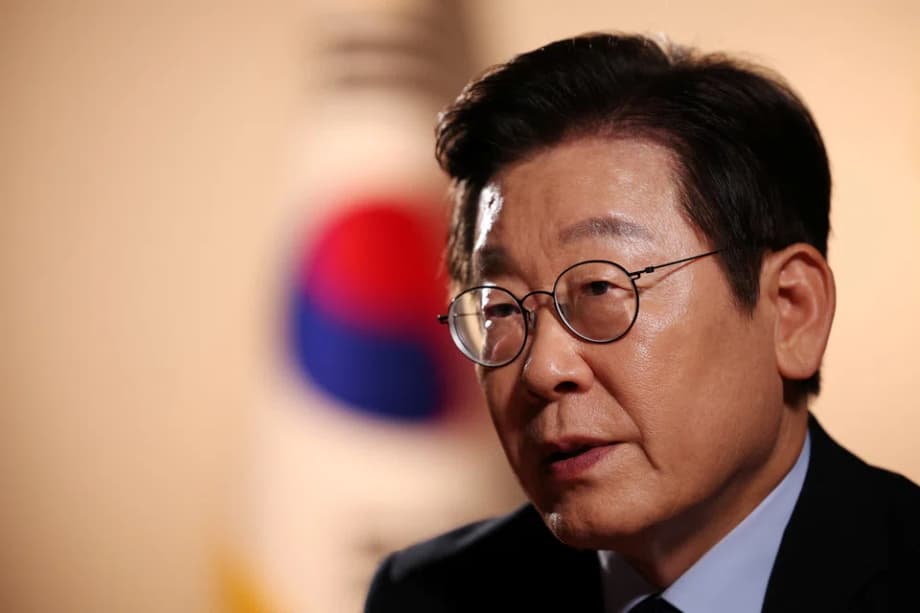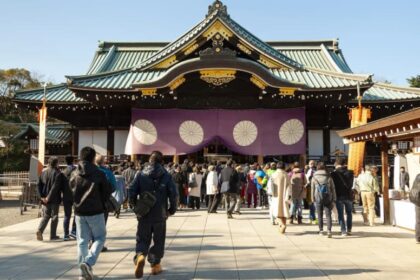A lethal scam exposes a hidden crisis
The death of 22-year-old South Korean student Park Min ho after torture in Cambodia has become a national trauma. He traveled to Cambodia in July for what he believed was a promising job opportunity. A month later his body was discovered near Bokor Mountain in Kampot Province. Cambodian authorities said cardiac arrest following torture was the cause. Investigators linked the crime to a ring run by foreign nationals, and prosecutors later charged three Chinese citizens with murder and fraud. The case crystallized a surge of kidnappings and forced labor targeting Koreans in Cambodia. President Lee Jae Myung ordered ministries to use every diplomatic and policing tool to safeguard citizens and recover the missing. Seoul raised its risk posture, added a special travel warning for Phnom Penh beginning Oct 10, and prepared tighter measures for crime hotspots.
- A lethal scam exposes a hidden crisis
- What is driving the surge in kidnappings
- Seoul’s response moves from warnings to action
- Rescue operations and the human toll
- Cambodian response and pushback
- Politics and pressure in Seoul
- A regional and global criminal economy
- What South Koreans can do to stay safe
- Key Points
The numbers tell the story of a fast moving threat. South Korea logged only two reports of kidnappings in Cambodia in 2021, 11 in 2022, and 21 in 2023. That figure jumped to 220 in 2024. By August this year, 330 cases had been reported. The South Korean Embassy in Phnom Penh confirmed that about 550 kidnapping or confinement cases involving Koreans were reported over the past two years. Roughly 450 people were rescued or released, but about 100 cases remain unresolved. Authorities warn that many victims were lured by online job ads that promised high pay and easy conditions, then were confined, beaten, and forced into scamming operations targeting people around the world.
Rescue accounts underscore both the scale and brutality. In early October, two Koreans were found and freed in Sihanoukville after they were threatened, assaulted, and ordered to take part in scams. In August, lawmaker Park Chan dae said his office helped locate and rescue 14 Koreans near Kampot, where a body later identified as Park Min ho was discovered. Seoul has arranged a joint autopsy with Cambodian authorities, while preparing to repatriate remains to grieving families. South Korean officials pressed Cambodia to ease rescue thresholds after reports that local police often requested photo or video proof of a kidnapping before intervening. Seoul asked that basic personal details and a likely location be enough to start a search.
What is driving the surge in kidnappings
A vast online scam economy has taken root in parts of Southeast Asia, with Cambodia among the epicenters. Criminal groups, many with regional links and significant financing, lure foreign workers with false job offers. On arrival, recruits face passport confiscation, isolation from the outside world, and forced labor. Workers are ordered to run romance and investment cons known as pig butchering, voice phishing, and crypto schemes. Refusal can lead to beatings, electric shocks, and other torture. Victims describe cramped dormitories, constant surveillance, and penalties for infractions as small as speaking to outsiders or asking to quit.
Estimates of the footprint vary. Amnesty International counts at least 50 to 53 scamming compounds operating across Cambodia. Other assessments place the number higher, in the hundreds, after casino and hotel closures during the pandemic pushed operators into online fraud. With a large pool of young job seekers, good internet connectivity, and proximity to regional hubs, the business found space to expand. Critics say local corruption and political protection help compounds survive raids, while crackdowns in neighboring states push elements back into Cambodia.
South Koreans became attractive to these syndicates for two reasons. First, the domestic market is lucrative for con artists who spoof banks, investment platforms, and delivery firms. Second, families often act quickly when kidnappers demand money to free a relative. Reports from Korean authorities and escapees describe confinement and ransom demands, sometimes in the tens of thousands of dollars, alongside forced work shifts intended to generate revenue for bosses.
Seoul’s response moves from warnings to action
After Park Min ho’s killing and a summer of rescue appeals from families, the South Korean government moved past general warnings. The Foreign Ministry sought stronger cooperation from Cambodian counterparts, and security agencies prepared on-site support. Travel advisories were raised to deter fresh departures into areas linked to scams. Risk messages now highlight Phnom Penh and major scam hubs such as Bokor Mountain, Bavet, and Poipet, where authorities later issued a Do Not Travel notice effective Oct 16.
Special team and Korean Desk
A joint response team headed by the second vice foreign minister will travel to Cambodia to coordinate rescues, speed up repatriations, and support local investigations. The mission includes officers from the National Police Agency and the National Intelligence Service. The government plans to reinforce the embassy’s capacity, including additional police staff and a new Korean Desk that lets Korean and Cambodian officers share leads, run joint interviews, and keep a round-the-clock hotline for urgent tips. Officials also signaled a push to create a regular system of cooperation between law enforcement agencies, rather than ad hoc case by case requests.
National Security Adviser Wi Sung lac said the priority is to recover missing citizens swiftly and close off the pathways that feed the scam centers. He pledged rapid repatriation of those located by the team and quick action to verify the safety of those who remain unaccounted for.
“We will bring our people home as fast as possible, and we will not pause until every case is accounted for,” Wi said, describing a whole of government effort that combines diplomacy, policing, and intelligence support.
Travel alerts and consular pressure
South Korea raised its travel warning for Phnom Penh with a special advisory that took effect on Oct 10. After new reports of confinement and assaults, authorities issued Do Not Travel guidance for identified hotspots. The Foreign Ministry urged citizens to avoid all offers of overseas work sourced from social media or messaging apps, and warned families that kidnappers use aggressive scripts to pressure relatives into paying.
Diplomatically, Seoul summoned Cambodia’s ambassador to press for unimpeded rescues and faster information sharing. Officials asked Cambodian police to start searches based on names and likely locations rather than a requirement for photo or video proof. South Korea also encouraged broader cooperation with partners, including information sharing with Interpol and police agencies in countries where syndicates recruit or launder money.
Rescue operations and the human toll
The rescue picture is complex. South Korea’s presidential office said this week that dozens of citizens remain unaccounted for, with some detained by Cambodian authorities during raids on compounds. Officials in Seoul put the number of South Koreans believed to be working in scam operations in Cambodia at around 1,000. Some entered knowingly, while many say they were misled then forced to work. Cambodian officials said about 80 Koreans are under supervision for checks on their status, and that not all are in formal detention.
Families in Korea describe ransom calls that strike without warning. In the case of Park Min ho, kidnappers demanded about 35,000 dollars. Investigators say many captives are threatened into phoning relatives to plead for money, then returned to work on fraud lines if no payment is made. Those who try to flee report violence and threats of further punishment. Korean police and diplomats are trying to separate criminal suspects from coerced workers during interviews, a time consuming process that must meet local legal standards.
Lawmakers who traveled to Cambodia say rescue criteria have delayed interventions. Representative Park Chan dae, who assisted with searches near Kampot, argued that the current threshold to launch a rescue is too high and is costing lives.
“Requiring a victim to send a photo or video during a kidnapping is unrealistic. Basic identity details and a probable location should be enough to start,” Park said, urging faster action by local authorities.
South Korean and Cambodian police agreed to conduct a joint autopsy before repatriation in the student’s case. The decision aims to support prosecution of suspects in Cambodia while addressing the concerns of the victim’s family in Korea. Prosecutors have charged three Chinese nationals with murder and online fraud linked to the killing, and police say they are searching for additional suspects.
Cambodian response and pushback
Cambodian officials and industry groups pushed back on the portrayal of Cambodia as uniformly unsafe. Tourism representatives said normal visitors were not the target of these crimes and urged a clearer distinction between tourists and those who traveled to take jobs offered online. Seam Sokkheng, head of the Cambodia Korean Tourist Guide Association, said he had led recent group trips without incident and called for better education in Korea about how online scams operate.
The government in Phnom Penh has highlighted a series of actions against online crime. Deputy Prime Minister Sar Sokha said authorities expelled more than 15,000 foreign nationals involved in online crimes over the past two years. Police spokespeople argue that Cambodia is part of a wider regional problem in which international syndicates move their operations to exploit gaps in enforcement.
Touch Sokhak, spokesperson for the Interior Ministry, said the killing of a Korean student should not damage relations between the two countries and warned that organized crime groups benefit when governments quarrel rather than coordinate.
“Cambodia is also a victim of these crimes. We must not allow international criminal networks to profit from division between partners,” Touch said, calling for practical cooperation with Seoul.
At the same time, Cambodian police have said some victims did not file official complaints until after the fact, complicating responses. South Korean officials counter that speed is critical in abduction cases and that rigid evidence requirements can prevent timely rescues.
Politics and pressure in Seoul
The crisis has triggered rare unity in the National Assembly on the need to protect citizens, even as parties trade blame for a slow response. Opposition lawmakers in the People Power Party demanded a more aggressive strategy, more police presence in Phnom Penh, and tighter coordination with Interpol and regional partners. Members of the ruling bloc also pressed for expanded embassy resources, faster case processing, and a standing mechanism to track missing citizens overseas.
During a parliamentary audit held at the embassy in Phnom Penh, Acting Ambassador Kim Hyun soo reported that about 100 of 550 cases logged in the past two years remain unresolved. Lawmakers from both camps urged the Foreign Ministry to reinforce staffing and improve data sharing with local police. The National Police Agency said it will establish a Korean Desk in Cambodia to centralize information, triage leads, and support local investigations. Ministries were told to close vacancies in diplomatic and police posts that handle overseas crime cases.
A regional and global criminal economy
The crisis in Cambodia is part of a wider shift in transnational crime. During the pandemic, syndicates that once relied on casinos and tourist traffic refocused on online fraud. Compounds across Cambodia, Laos, and Myanmar now recruit by the thousands, with workers from China, Southeast Asia, South Asia, and beyond. Interpol and national police forces say scam centers are expanding into Vietnam, the Philippines, Malaysia, and Indonesia. When one jurisdiction tightens, operators often relocate assets and personnel to a new base.
Money flows reflect the reach of these schemes. Korean authorities estimate that domestic victims lost hundreds of millions of dollars to fraud last year. Western governments have targeted financiers they say enable the networks. The United States and the United Kingdom sanctioned the Prince Group, whose chair is Chen Zhi, for suspected links to money laundering and large online fraud operations. U.S. officials said they seized a large quantity of bitcoin associated with related networks, a case they described as one of the biggest recoveries of digital assets tied to criminal activity.
Investigators in Seoul argue that sustained progress requires three elements. First, faster rescue protocols with Cambodia to find and extract people who are held against their will. Second, joint policing tools that go beyond case by case cooperation. Third, financial pressure on syndicates and intermediaries that cash out proceeds through banks and crypto exchanges. Without pressure on both the criminal labor market and the money trail, police warn that new compounds will replace any that are shut down.
What South Koreans can do to stay safe
The danger starts with a message or an ad that appears too good to be true. Recruiters promise easy work posted from Cambodia with high monthly pay, flights covered, and minimal qualifications. Once a traveler arrives, the story often changes. Passports are taken for fake paperwork, movement is controlled by security guards, and phones are monitored. If a person tries to leave, they are told to pay a large penalty. These are hallmarks of forced labor and illegal detention, even if the offer looked attractive at first.
- Be skeptical of job offers abroad that come from social media, forums, or messaging apps, especially if pay seems high and interviews are brief.
- Do not send passport scans or personal data to unknown recruiters. Fraud rings harvest identities to target new victims.
- Check official travel advisories, including Do Not Travel guidance for hotspots such as Bokor Mountain, Bavet, and Poipet (effective Oct 16).
- Register overseas travel with Korean consular services so you can be reached quickly in an emergency.
- If a relative goes missing in Cambodia, collect names, recent photos, last known locations, and phone numbers, and contact the embassy and police immediately.
- Do not negotiate directly with kidnappers. Share any ransom demands with law enforcement.
- If you escaped from a compound, go to the nearest police station or embassy. Ask to contact the Korean Desk or the embassy duty officer.
Families can help by preserving call logs, chat histories, and bank records. Screenshots of job ads, recruiter handles, and payment requests are valuable for investigators. Officials stress that many coerced workers are also victims of crime, and that information which speeds verification can save lives.
Key Points
- South Korea escalated its response after the killing of student Park Min ho, raising travel warnings and sending a joint team to Cambodia.
- Reports of Koreans kidnapped or confined in Cambodia rose from 21 in 2023 to 220 in 2024 and 330 by August 2025.
- The embassy logged about 550 cases in two years, with roughly 100 still unresolved and about 450 people rescued or released.
- Officials estimate around 1,000 Koreans are working in Cambodian scam centers, some coerced and some voluntary.
- Three Chinese nationals have been charged in the student’s killing, and police are searching for additional suspects.
- Seoul is creating a Korean Desk and pushing for faster rescue protocols that do not require photo or video proof of abductions.
- Cambodia says it expelled more than 15,000 foreign workers tied to online crime in two years and calls for cooperation, not confrontation.
- Western governments sanctioned financiers linked to the scam economy, while police warn that fraud hubs are spreading across Southeast Asia.












